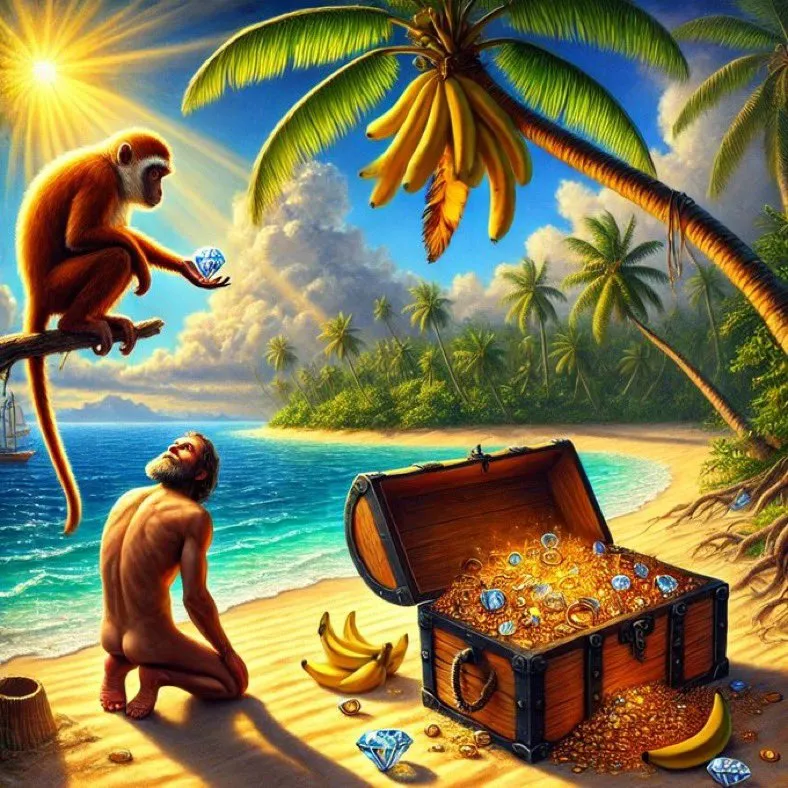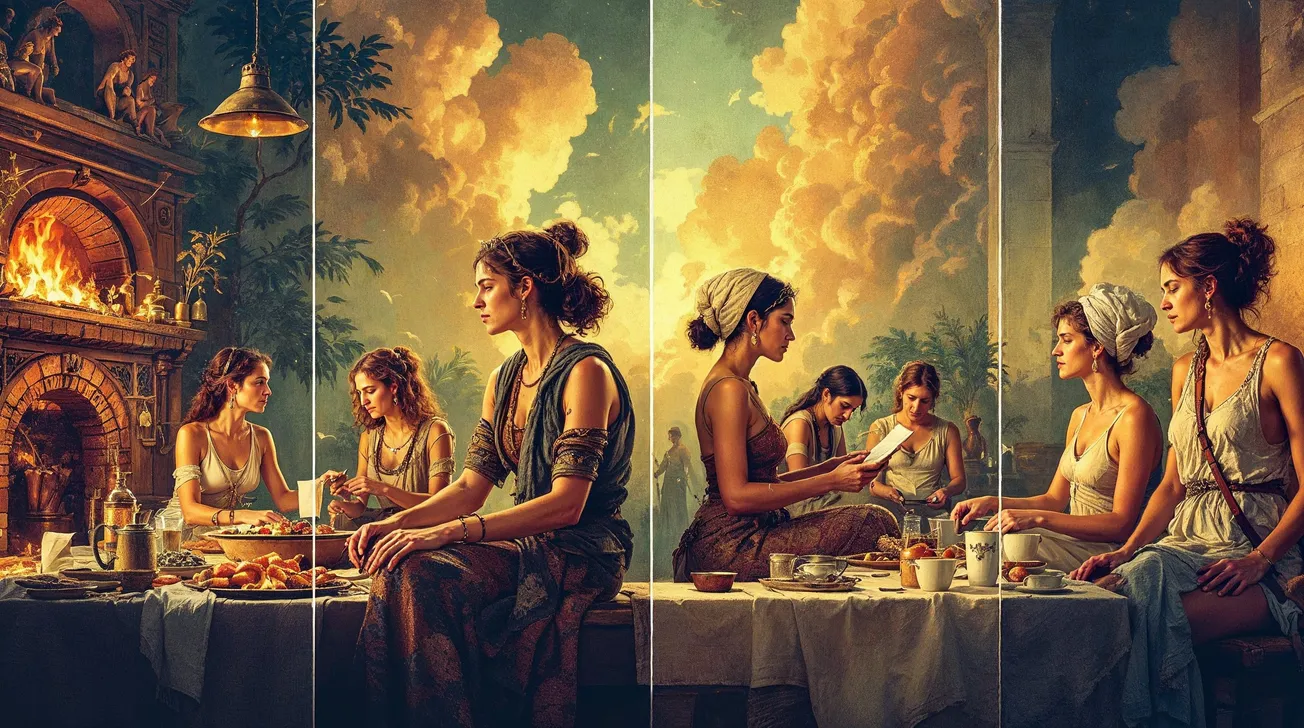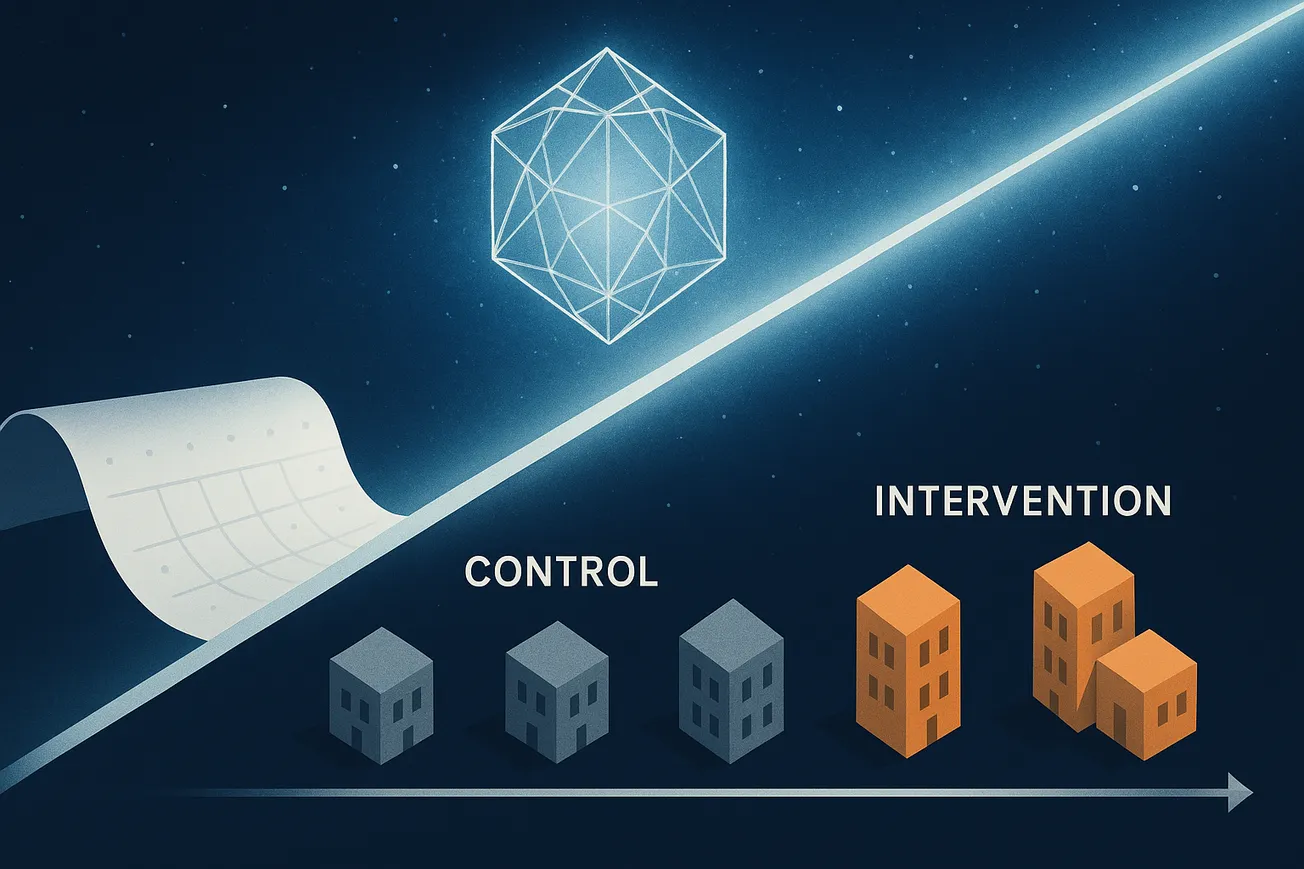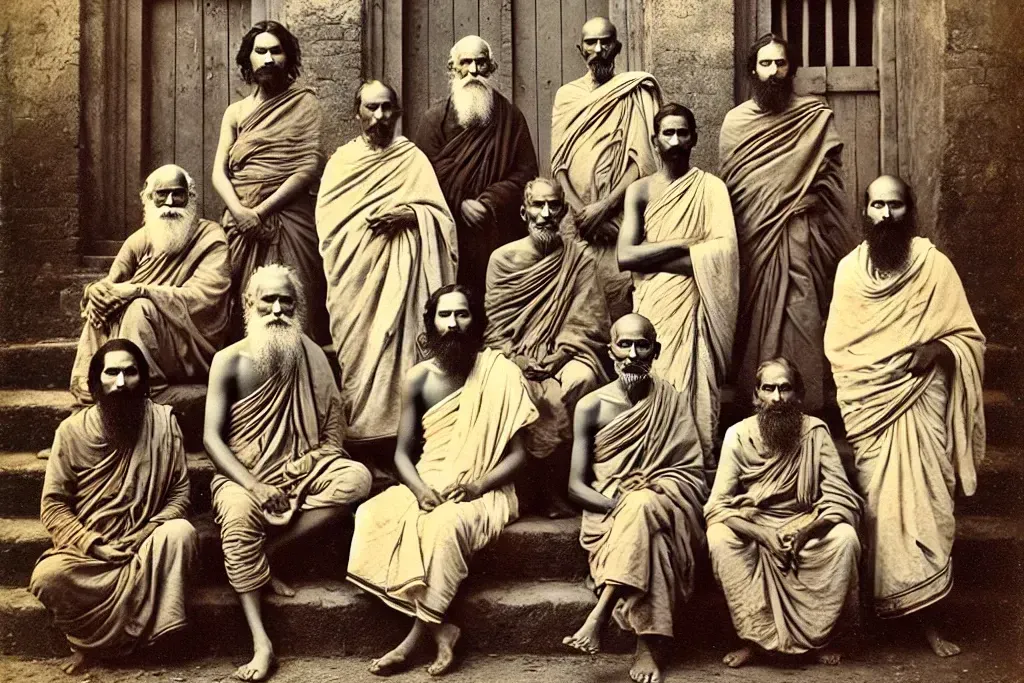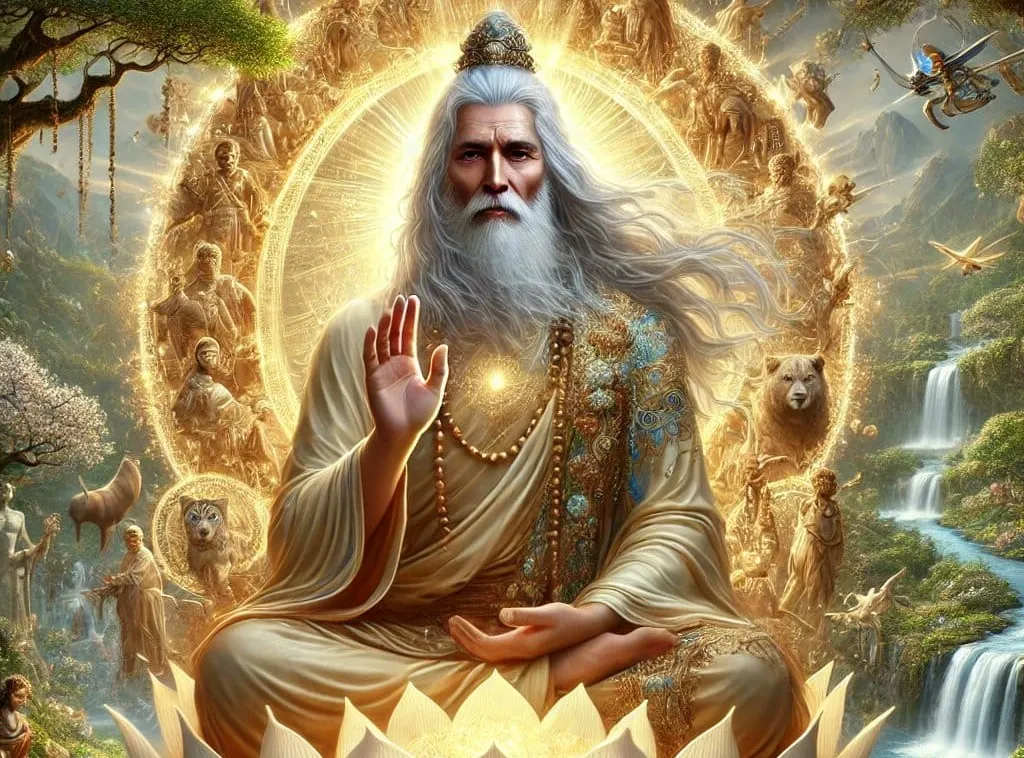In some forgotten corner of the Pacific—beyond the reach of maritime charts and trade routes—there dwells a castaway who once believed he had discovered a treasure of final and absolute worth: a chest laden with gold and diamonds, presumably abandoned by fabled pirates. The metals and stones glow in their coffer with a sorcery of brilliance. And yet, in the encompassing hush of this island, their radiance is bereft of meaning. Nearby, a monkey busies itself harvesting ripe bananas, watching with an imperturbable gaze the castaway’s growing delirium over such trinkets.
The castaway tries to barter a dazzling emerald for the mere taste of a banana. The monkey, moved by a faint glimmer of pity, utters a maxim that in its homely wisdom rivals the oracles of Delphi:
“Papa monkey isn’t fooled by a green banana. Shiny baubles won’t stave off hunger.”
In that fleeting moment—worthy of one of Yuval Noah Harari’s epiphanies—the castaway glimpses the deep illusion that Harari would call our collective fiction. As the historian reminds us that nations, currencies, and gods are woven from the shared stories of humanity, the castaway now perceives how relative his prized possession truly is. Gold, diamonds, emeralds may shine as potent symbols in the far-off realm of human commerce, but here on this voiceless shore, bereft of paths leading back to any other civilization, they are no more than silent idols with no power to feed or sustain.
A Typical Borgesian Revelation
Here we encounter a lesson that resonates with Borges’ labyrinthine meditations: reality is a web of symbols and reflections, and all meaning we ascribe to an object depends on the communal consciousness that upholds it—the unspoken narrative we pass from one to another. The castaway, who believed he held the ultimate treasure, discovers the irony that a bounty unable to quench thirst or sate hunger is weightless in the economy of this small isle. Here, immediacy rules: water, nourishment, and that unspoken kinship with a being so unlike yet so akin to ourselves.
Harari has taught us that our species stands on the edifice of grand illusions—fictions that bind millions as often as they divide them. On this island, alone, the castaway watches the majestic figments of his former world collapse. That downfall, though cruel, also carves out an empty space wherein something essential may arise: the will to survive, and the human capacity to recognize himself in the eyes of another creature—even a monkey—whose wisdom consists in dwelling fully in the present, longing for nothing more than the fruit gripped in its hand.
The Meaning of Life and Company
In the depths of solitude, learning to share a banana becomes the most profound act of communion. Casting off his former pride, the castaway offers not his jewels but his simple gratitude. He sets aside the tokens of an obsolete wealth in exchange for a morsel of sustenance. The monkey demands no pledges, no compulsion; it freely gives the fruit, guided by a spontaneous kindness or perhaps an animal compassion, recognizing in the other not a stranger, but a fellow survivor. Thus dawns the Eternal Fellowship of the Banana (TEFOTB): a humble covenant, free of deeds or legalities—an unspoken bond that proves each one sees and acknowledges the other as a living being, scorched by the same merciless sun, tormented by the same thirst, and saved from despair by a small gesture of mercy.
Unconditional Love
As the great mystics have noted, true love demands nothing in return. The monkey does not bow to promises of gold; its generosity does not grow from obligation or calculation, but from an unselfconscious immediacy. And so, within the heart of unconditional love, there is no place for human bookkeeping, nor for balancing the scales with useless glitter. There is only the intuition that to give and to receive, in their purest forms, are but twin faces of compassion—a living acknowledgment that we share a single and inseparable destiny.
Borges, Harari, and the Humble Path
In a Borgesian tale, the island would be a microcosm of civilization’s paradox: we devise grand symbols and towers of meaning, yet we forget the simplest truths that sustain life. Harari, echoing that thought, reminds us we are but apes—slightly more aware—authors of powerful stories that can unite multitudes but that also threaten to enslave us if we lose sight of our raw, fragile bodies and their fundamental needs.
This island thus becomes a perfect mirror, reflecting the futility of a treasure chest with its alluring gold as opposed to a banana’s promise of plain survival. Its true secret is revealed in the monkey’s kind gaze, a gaze that perhaps knows more of the immediate present than all our accumulated books and histories.
Epilogue: The Final Embrace
Upon the shore, with a banana in his hand, the castaway beholds the monkey, their eyes meeting in a wordless communion. In that instant—a moment that seems to suspend time—the great human longing for kinship is satisfied. Without uttering a syllable, each extends an unspoken recognition: both of them, in all their difference, share the same intangible mystery—this precarious life that exists here and now. While the monkey climbs the palm tree to gather more fruit, the castaway finds the weight of the chest and its meaningless riches lifted from his heart. In that fragile union of present time, he intuits the seed of all future bliss.
Hence is born the Eternal Fellowship of the Banana: not a dogma nor a decree, but an elemental act of human connection, a humble return to the awareness that beyond all wealth, it is the shared breath of life and the silent contract of mutual compassion that hold the true measure of our existence. And in the end, love—like a hidden chord in the vast music of the cosmos—is the sole bond that ties us all, humans and monkeys alike, as we drift through the solitary archipelagos of our many shipwrecks.
